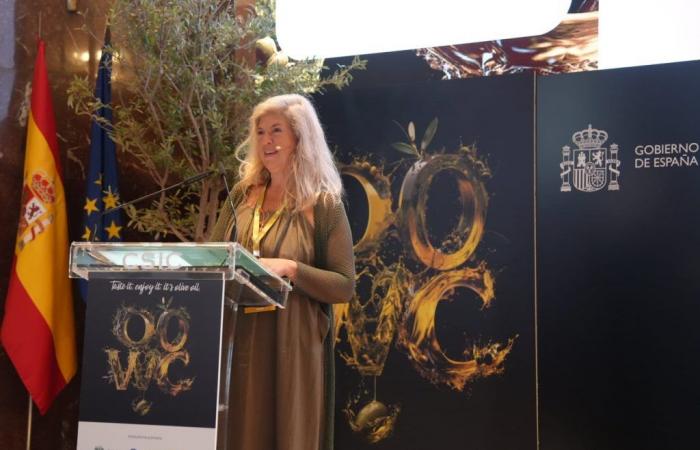The second day of the Olive Oil World Congress (OOWC) opened with segment D: ‘Commercial standards, quality and safety’sponsored by ‘Campo y Alma’, the food quality assurance brand of Castilla-La Mancha, where Mercedes Fernández, head of the Standardization and Research Unit of the International Olive Council (IOC), has emphasized the need for “Olive oil tasters are directly trained as established by the method to ensure accurate evaluations.”
To the thread, Kamel Ben Ammar, director of the ONH-OOC International Training Center, has highlighted the importance of quality and authenticity. Wenceslao Moreda, head of the CSIC Research Panel, pointed out that “the future of olive oil depends on our ability to innovate and adopt new technologies that support the quality and authenticity of the product.” For his part, Hermenegildo Cobo, regional director of ICEX in Seville, explained the classification criteria for virgin olive oils and their commercial implications.
Next, Tullia Gallina, researcher at the University of Bolognaaddressed ‘The role of polyphenols in virgin olive oil and its sensory properties’, through the results of oleumproject. The professor spoke about the importance of traceability in the supply chain, promoting transparency from production to the final consumer, and how these innovations not only improve the quality of the oil, but also support sustainable practices in production. Gallina concluded by calling on the industry to adopt these innovations and thus ensure a high standard of quality and authenticity, benefiting both producers and consumers and strengthening confidence in products on the market.
Karolina Brkić, researcher at the Croatian Institute of Agriculture and Tourism, has reported on ‘Aromas in olive oils’. “It is essential to properly manage the ripening of the olives and the conditions during processing, such as temperature and malaxation time, to preserve the sensory and nutritional attributes of the oil,” indicated the expert.
This block has been closed with the round table ‘Sensory analysis and its importance in determining the quality of EVOO in commercial markets’, moderated by Yousra Antit, head of the IOC Olive Chemistry Department, and in which Plácido Pascual, head of the tasting panel of the Agri-Food Laboratory of Córdoba, participated; Francisco de Paula, technical advisor of the Junta de Andalucía; Igor Calderari, scientific manager of the Italian Association of the Olive Industry (ASSITOL); and Mariana Matos, general secretary of Casa do Azeite de Portugal.
In it, the speakers agreed that sensory analysis allows us to identify subtle differences in olive oil that could not be detected in chemical analyzes and that the sector works in an important way for the quality and authenticity of olive oil.






